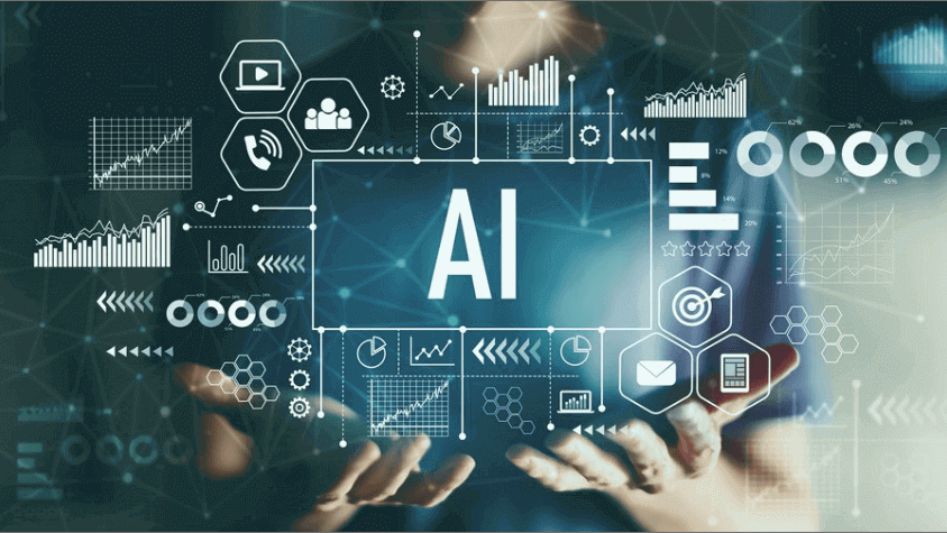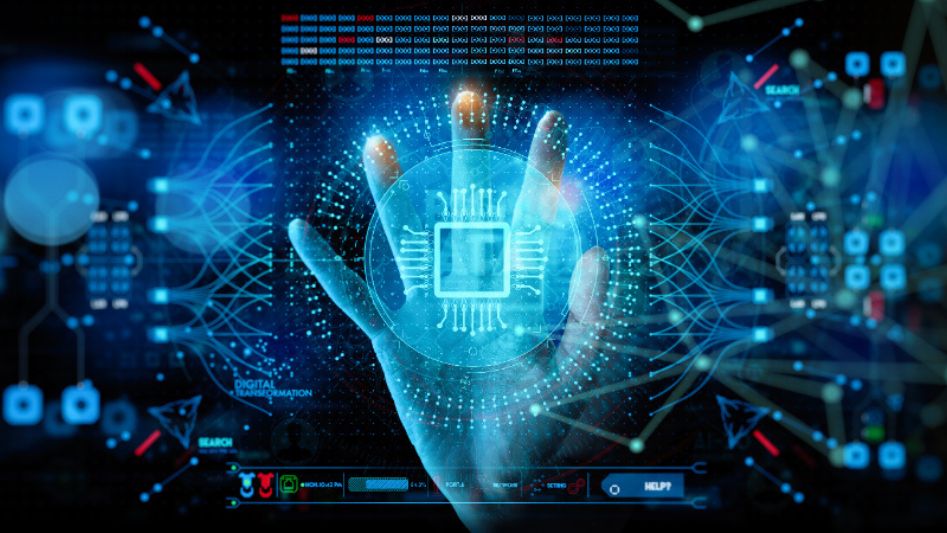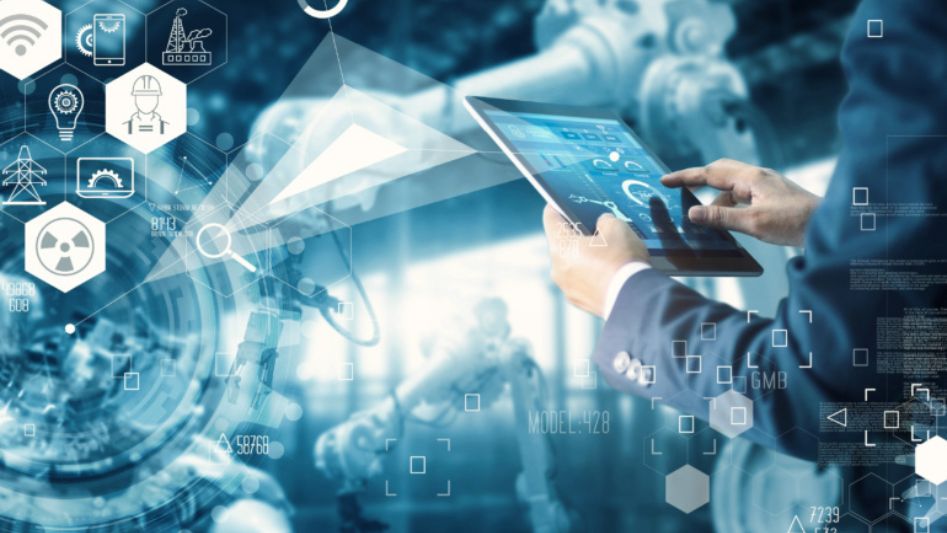Artificial Intelligence (AI) has rapidly evolved over the past few decades, and its impact on various aspects of our lives is undeniable. From healthcare and finance to transportation and entertainment, AI has transformed industries and promises to continue doing so in the future. In this article, we will explore the key trends and transformations that are shaping the future of AI.
Table of Contents:
We invite you to read: “THE FUTURE OF TECH: EXPLORING EMERGING TRENDS IN 2023”

1. AI in Healthcare
AI has made significant strides in the healthcare industry, with applications ranging from early disease detection to personalized treatment plans. In the future, we can expect even more advancements, such as AI-powered robotic surgeons, improved diagnostic accuracy, and the use of AI to predict disease outbreaks. The integration of AI in healthcare will lead to more efficient and cost-effective patient care.
2. Autonomous Vehicles
Self-driving cars have been a focal point of AI development, and major companies like Tesla and Waymo are at the forefront of this technology. The future holds the promise of safer and more efficient transportation systems as autonomous vehicles become mainstream. AI algorithms will continue to improve, making self-driving cars more reliable and capable of handling complex traffic situations.
3. AI in Finance
In the financial sector, AI is revolutionizing risk assessment, fraud detection, and algorithmic trading. As AI algorithms become more sophisticated, they will enable better prediction of market trends, leading to more informed investment decisions. Additionally, chatbots and virtual financial advisors will provide personalized financial guidance to consumers.
4. Natural Language Processing (NLP)
NLP has come a long way, thanks to advancements like GPT-3. In the future, we can expect even more realistic and context-aware AI chatbots, translation services, and content generation tools. NLP will also play a crucial role in breaking down language barriers and improving global communication.
5. AI Ethics and Regulations
As AI becomes more integrated into our daily lives, there will be a growing need for ethical guidelines and regulations. Issues related to bias, privacy, and transparency will require careful consideration. Governments and organizations worldwide will work together to establish frameworks that ensure AI is used responsibly and for the benefit of society.
We invite you to read: “THE FUTURE OF TECHNOLOGY: PREDICTIONS ON AI AND IOT’S IMPACT IN THE NEXT 10 YEARS”

6. AI and Education
AI-powered personalized learning platforms will continue to transform education. These platforms adapt to the individual needs of students, providing tailored content and assessments. AI will also assist teachers in automating administrative tasks, allowing them to focus more on teaching and mentoring.
7. AI in Manufacturing
The manufacturing industry is embracing AI-driven automation to improve efficiency and reduce costs. In the future, AI-powered robots and machines will collaborate seamlessly with human workers, leading to more agile and flexible production lines. Predictive maintenance will also become a standard practice, reducing downtime and saving resources.
8. AI and Creativity
AI is not limited to analytical tasks; it is also making inroads into creative domains. AI-generated art, music, and literature are already gaining recognition. In the future, we can anticipate more collaborations between humans and AI in creative fields, leading to innovative and unique expressions of art and culture.
9. AI and Sustainability
AI can play a vital role in addressing environmental challenges. Machine learning algorithms can optimize energy consumption, reduce waste, and enhance resource management. AI-powered models can predict climate changes and support efforts to mitigate the impact of climate crises.
10. AI in Space Exploration
The exploration of outer space will benefit from AI advancements. AI can assist in autonomous navigation, data analysis, and the operation of robotic spacecraft. It will contribute to our understanding of the cosmos and enable ambitious missions to distant planets and beyond.
We invite you to read: “THE IOT IN TRANSPORTATION: A JOURNEY INTO THE FUTURE”

Conclusion
The future of AI is filled with promise and potential. As technology continues to advance, AI will become an integral part of our lives, shaping various industries and enhancing our daily experiences. However, it is essential to approach AI development with ethical considerations and regulations to ensure its responsible and beneficial use. The ongoing collaboration between researchers, businesses, and policymakers will be crucial in harnessing the full potential of AI for the betterment of society.
FAQs
How will AI affect manufacturing?
AI-driven automation will optimize manufacturing processes and enable human-robot collaboration.
Can AI be creative?
Yes, AI is entering creative domains like art and music, leading to innovative expressions of creativity.
How will AI contribute to sustainability?
AI will optimize energy consumption, resource management, and climate prediction to address environmental challenges.
What role will AI play in space exploration?
AI will assist in autonomous navigation, data analysis, and robotic spacecraft operations in space exploration.
You May Also Like
- AI IN ENTERTAINMENT: THE FUTURE OF FILM, MUSIC, AND ART
- THE ROLE OF AI IN SHAPING SUSTAINABLE FUTURES
- THE FUTURE OF TECHNOLOGY: 10 INNOVATIONS THAT WILL TRANSFORM OUR LIVES
- THE FUTURE IS HERE: DISCOVER THE MIND-BLOWING POTENTIAL OF IOT
- IOT AND ENERGY: HOW THE INTERNET OF THINGS IS TRANSFORMING THE ENERGY SECTOR
HELPFUL LINKS
- How Artificial Intelligence Will Transform Businesses
- What the Finance Industry Tells Us About the Future of AI
- AI And Digital Transformations: Is Your Company Prepared?
- Biggest AI Trends Transforming the Customer Service Industry (And, How You Can Prepare for the Future)
- AI-Powered Tech Trends that will Influence the Future of Digital Transformation


Recent Comments